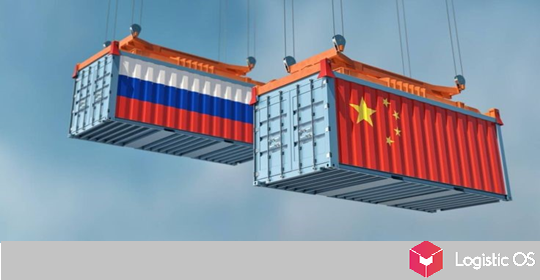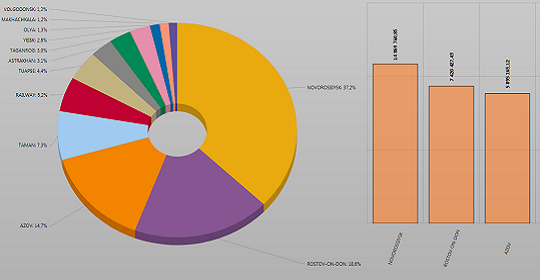Grain is a strategically important cargo, therefore, the conditions of its transportation are given special importance.
Rail transport is often used to transport grain.
There are several reasons: the relatively low cost allows traders to save on logistics, transport large volumes of cargo in a fairly short time, and specialized grain carriers facilitate its fast loading and unloading.
It is important that in Russia there is a widespread railway network that allows you to deliver goods to almost any point.
In August, an absolute record was reached for grain handling on the Russian Railways network: 2.79 million tons.
Thus, the 2018 maximum of 2.65 million tons was updated. Up to 5% maximum.
Also breaks record for export shipments: 1.962 million tonnes.
Once again, the once-record 2018 is bypassed: 1.692 million tons. The growth was 9%.
In total, 15.2 million tons of grain have been loaded since the beginning of the year. Despite the pandemic, volume increased by 20.6% year-on-year.
Here are the data by region in decreasing order of increment:
Kursk region — 1.75 million tons (1.9 times increase)
Saratov region — 1.15 million tons (1.7 times growth)
Volgograd region — 951.4 thousand tons (an increase of 1.5 times)
Lipetsk region — 825.6 thousand tons (1.4 times increase)
Tambov region — 736.3 thousand tons (1.4 times growth)
Krasnoyarsk Territory — 683.6 thousand tons (+ 19.3%)
Krasnodar Territory — 797.7 thousand tons (+ 3.2%)
But the Stavropol Territory reduced the volume by 4.8% to 1.1 million tons.
From January to September this year, 8.7 million tons were exported with an increase of 33.4%.
The largest importers who received goods by rail are Egypt, Turkey, Azerbaijan, Kazakhstan, Israel, Belarus, Mongolia and China.
In September, Russian Railways expects even higher performance from grain growers. The only question is whether there are enough grain carriers to transport the record harvest.
Not only are large market players such as VTB and Fesco either selling them or buying them, but also according to the order from the top at the end of 2019-2020, according to the fleet renewal program, 10,600 grain carriers should be written off, and not everyone will dare to buy wagons during the crisis …
Under these conditions, the tendency towards market consolidation is clearly visible — when the carrier and the shipper are links of the same structure.
An obvious example is the acquisition of Rusagrotrans by VTB.
On the one hand, there is a bank (the owner of the grain assets of which is the controlled company Demetra-Holding), which has 50% minus 1 share of the United Grain Company and controls the Novorossiysk Combine of Grain Products.
On the other hand, it is the largest railway operator for the transportation of grain, which accounts for almost 70% of specialized transport.
Whoever can afford it tries to follow the trend. Well, the rest can only hope for a general improvement in the economic situation.

